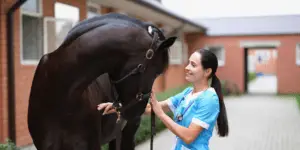
Organs of the Horse – Take a Look Inside
Just as it is with humans, the horse’s skin is the largest organ of the body. However, this blog post is dedicated to the organs that we cannot see from the outside. Let’s take a look inside the horse and
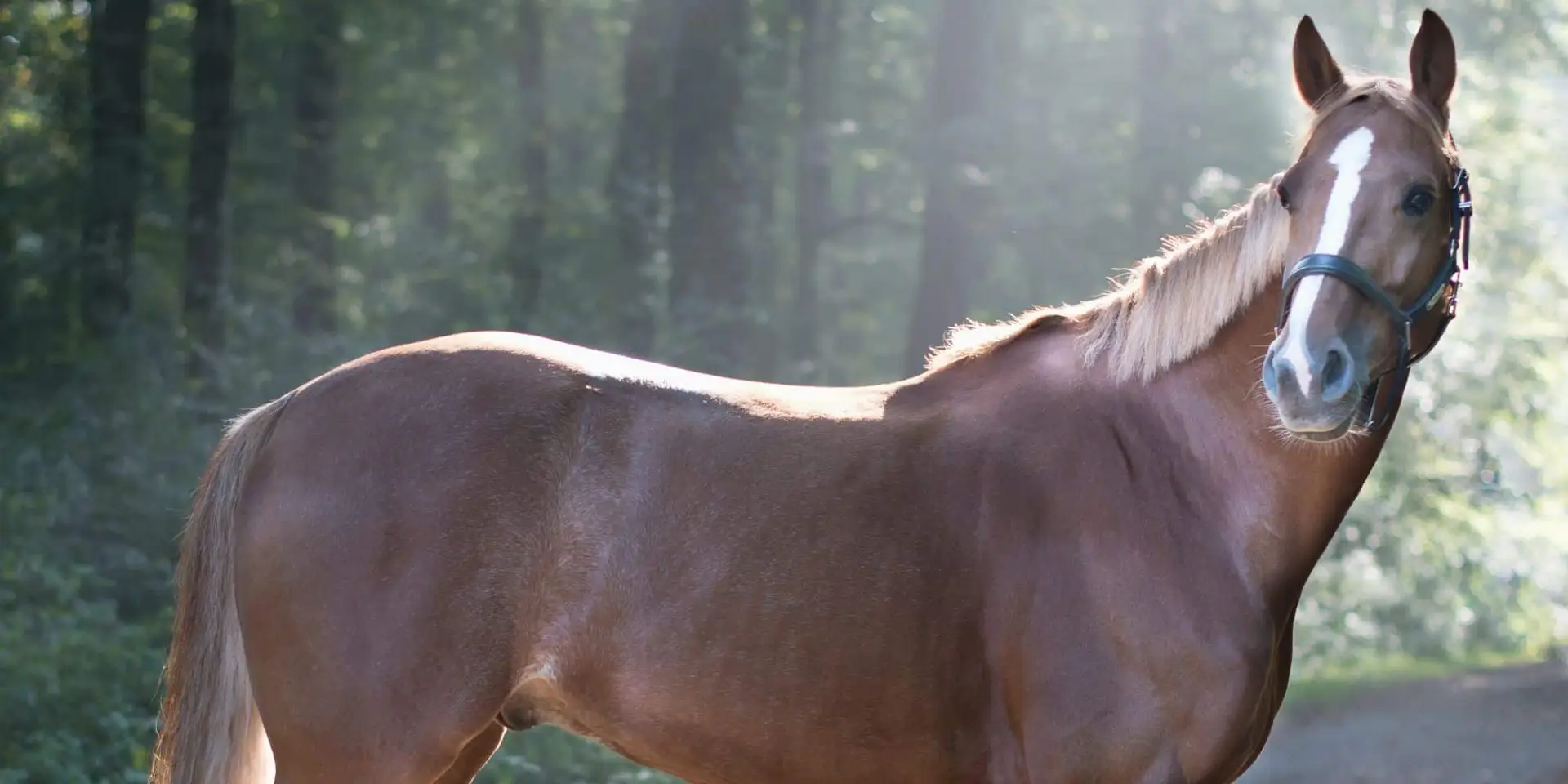
The body condition score (BCS) is a subjective evaluation method used to assess a horse’s overall body condition and fat coverage. The BCS system typically uses a scale of 1 to 9, with 1 being emaciated and 9 being obese. The ideal score for most horses is between 4 and 6, with 5 being considered ideal.
Body condition scoring is an important tool for horse owners, trainers, and veterinarians to monitor a horse’s health and nutritional status. Regular BCS assessments can help detect changes in a horse’s weight and body condition, and allow for adjustments in diet and management to ensure optimal health and performance.
A body condition score (BCS) should be considered for horses because it is an important tool for assessing a horse’s overall health and nutritional status. By evaluating a horse’s body fat cover, a BCS can help determine whether a horse is underweight, overweight, or at an ideal weight. This information is important because a horse’s weight and body condition can have a significant impact on its overall health, well-being, and performance.
For example, a horse that is underweight or has a BCS below the ideal range may be at risk for a number of health problems, including poor immune function, decreased fertility, and reduced athletic performance. On the other hand, a horse that is overweight or has a BCS above the ideal range may be at risk for issues such as insulin resistance, laminitis, and joint problems. By regularly monitoring a horse’s BCS, horse owners and caretakers can make adjustments to the horse’s diet and management to maintain a healthy weight and prevent these types of health issues.
In addition, a BCS can also be used to monitor a horse’s response to changes in diet or exercise. By regularly evaluating a horse’s body condition over time, horse owners and caretakers can assess whether their management practices are effective in achieving their desired weight and body condition goals. Overall, considering a body condition score is an important part of responsible horse ownership and management.
A horse with a BCS of 1 is extremely thin and may have prominent ribs, hip bones, and other bony protrusions. A horse with a BCS of 5 has a moderate amount of fat coverage over the ribs and other bones, with a rounded, but not overly obese, appearance. A horse with a BCS of 9 is extremely overweight and may have significant fat deposits in the neck, shoulders, and hindquarters.
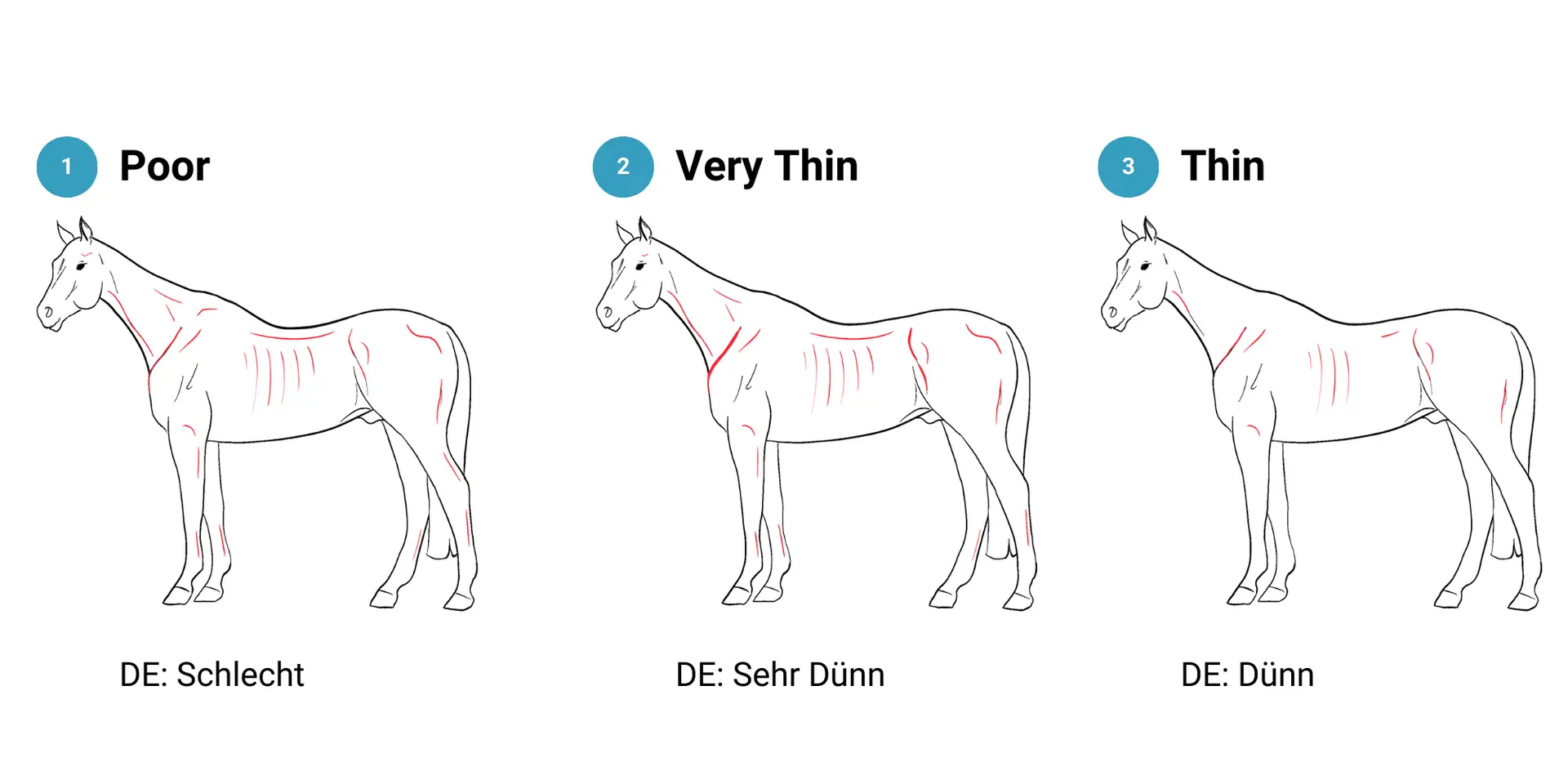
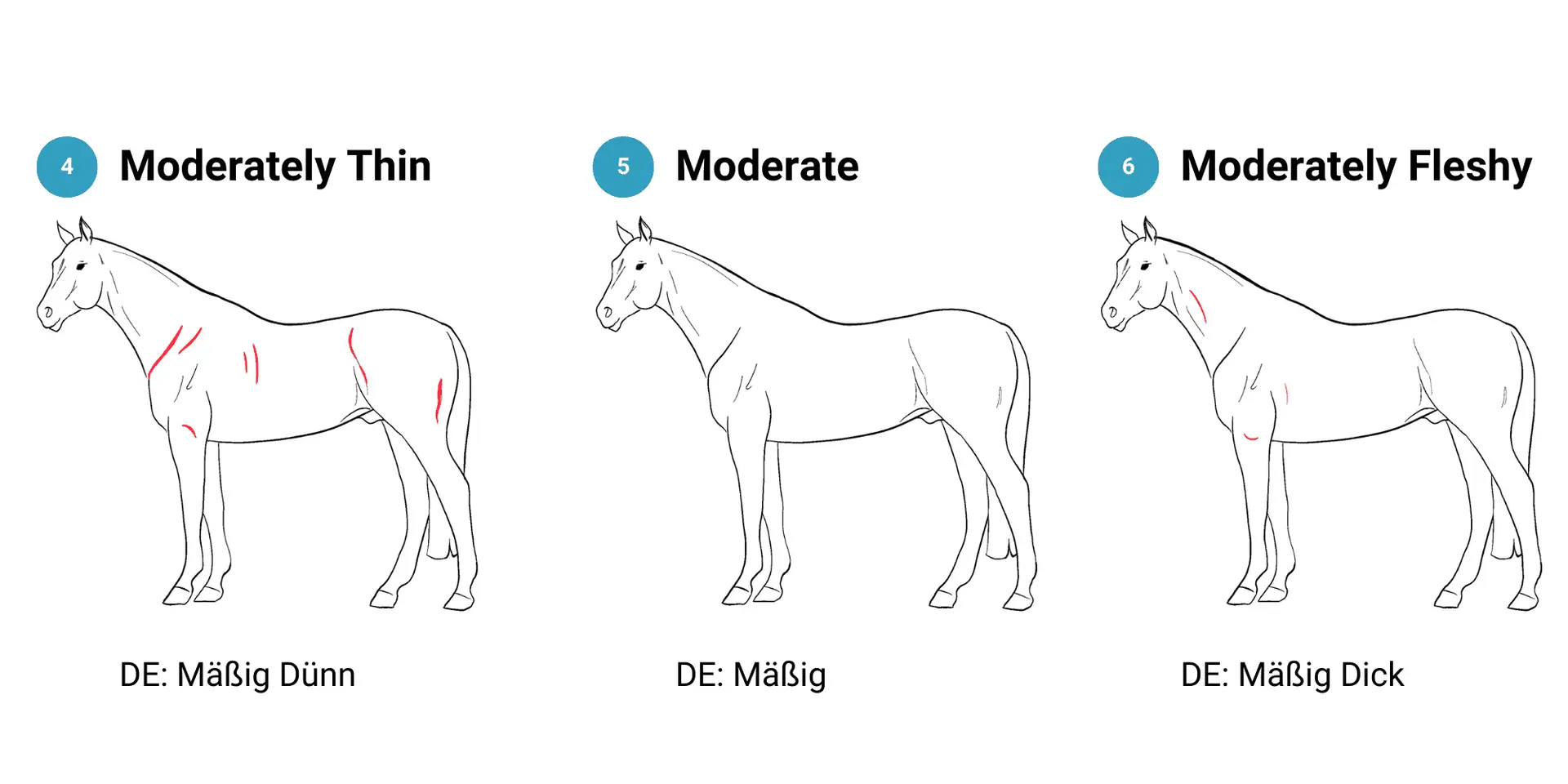
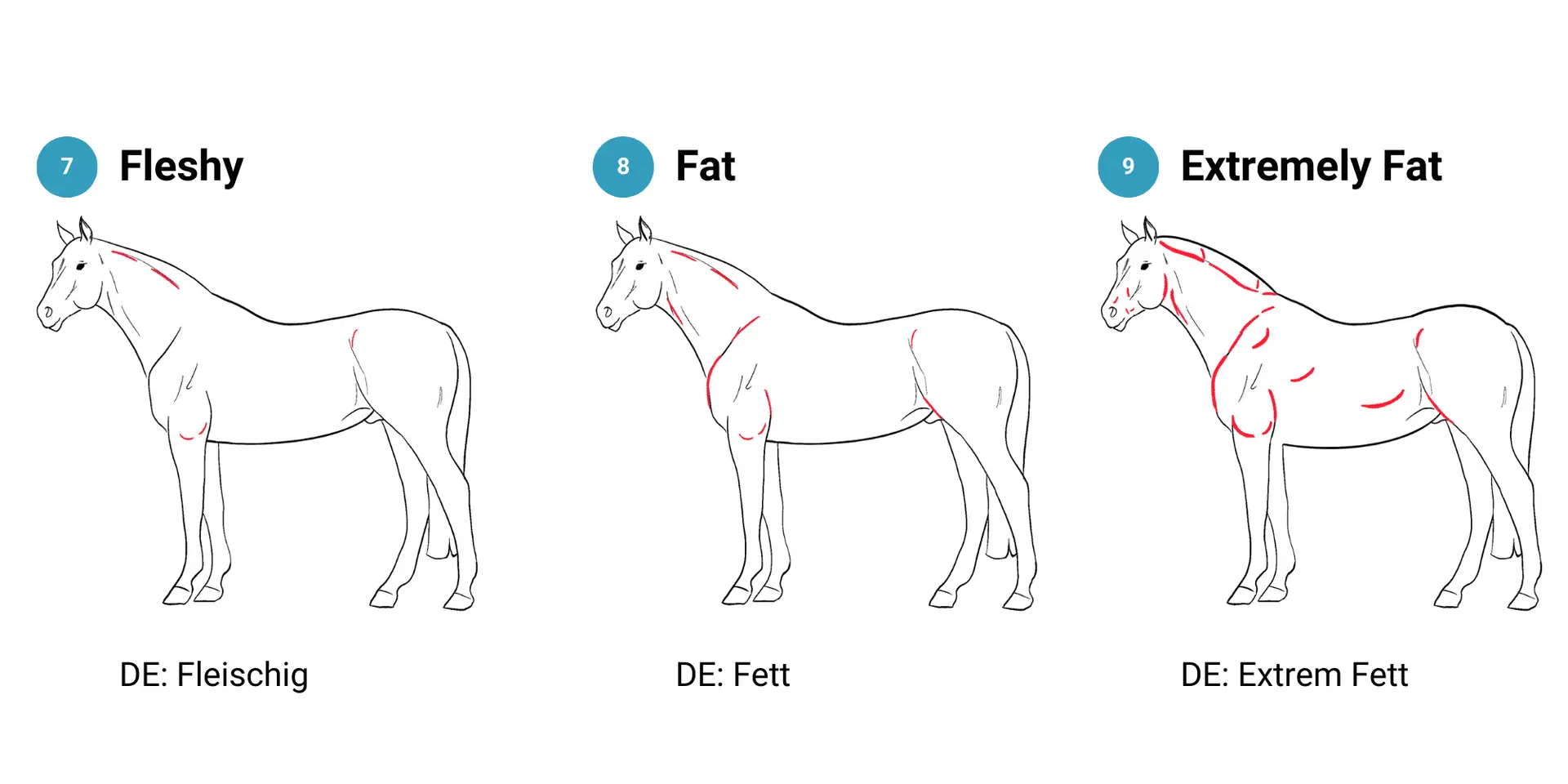
The Body Condition Score (BCS) is the same for all breeds of horses. The BCS scale is a standardized method used by veterinarians, horse owners, and trainers to evaluate the overall body condition and fat cover of a horse, regardless of its breed. While different breeds may have different body types and conformation, the BCS is based on the amount of body fat a horse has, rather than its breed-specific features. It is important to note, however, that certain breeds may have different ideal BCS ranges based on their individual breed characteristics and performance requirements. Therefore, it is always recommended to consult with a veterinarian or equine nutritionist for breed-specific recommendations.
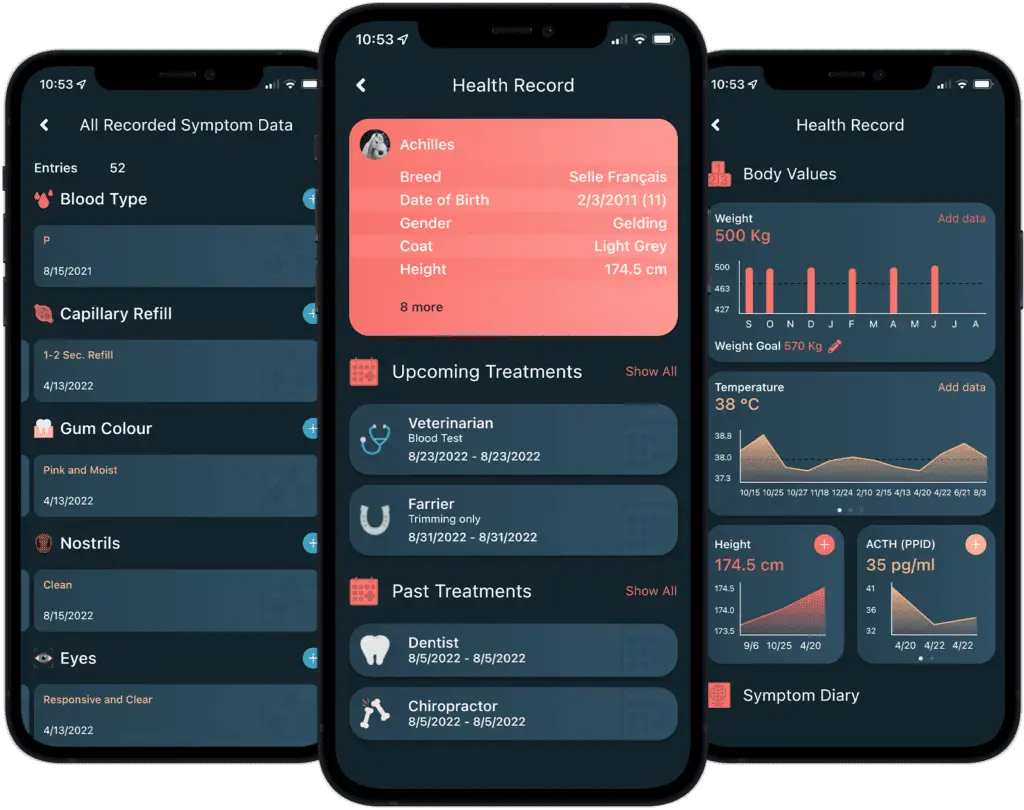

Just as it is with humans, the horse’s skin is the largest organ of the body. However, this blog post is dedicated to the organs that we cannot see from the outside. Let’s take a look inside the horse and
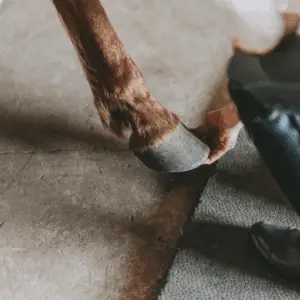
Going barefoot refers to the practice of keeping horses without horseshoes, allowing them to walk and run on natural surfaces with their hooves unprotected by metal shoes. This practice is based on the idea that horses evolved to have hooves
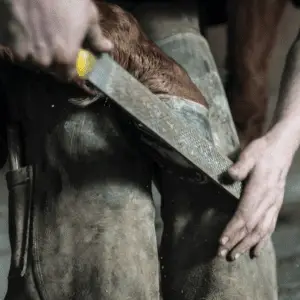
For a healthy foundation Hoof care is an important part of equine health care. The hooves are the foundation of the horse and bear the entire body weight of the animal. Regular hoof care is therefore essential to maintain healthy
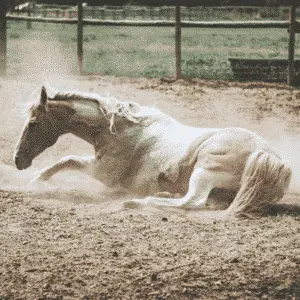
Expert Advice: This article was written by Dr. Pedro Penha Garcia, a veterinarian with 10+ years of experience. What is an Equine Colic? A Colic is something no horse owner wants to face, but if you have horses, you’ll likely

Are you over-rugging your horse out of concern? There are key factors you should keep in mind when using blankets for your horse during winter. During the winter season, most people automatically throw a rug on their horse, or so

It is nothing new that horses are very agile animals. But did you know that a horse’s skeleton consists of 252 individual bones? This means that a horse has 46 more bones than a human. However, horses do not have